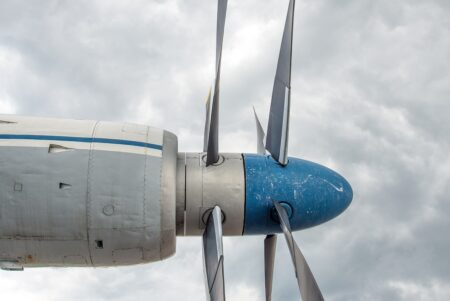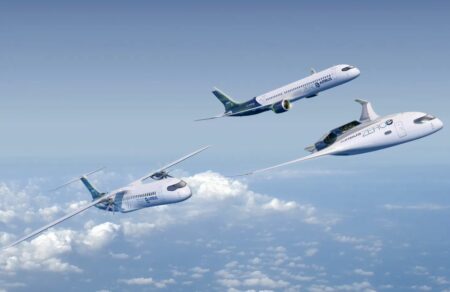In the vast expanse of global greenhouse gas emissions, air travel’s seemingly modest 3 percent share belies its colossal impact, surpassing the collective emissions of entire nations.
Browsing: Airbus
Airbus has inaugurated the ZEROe Development Centre (ZEDC) for hydrogen technologies at its Stade site in Germany.
Airbus has achieved a significant milestone in its Blue Condor hydrogen plane contrail research experiment. The endeavor saw the flight of a modified glider, powered solely by hydrogen (H2), through the skies of Nevada in November.
Airbus, the global aircraft manufacturing giant, announced plans to expand its production significantly in Germany. The company aims to build 75 A320 family aircraft every month by 2026, with a particular focus on A321neo and the long-haul version A321XLR.
ZeroAvia has concluded its Series C funding round, amassing a total of $116 million. This funding, with key participation from the UK Infrastructure Bank, Airbus, Barclays Sustainable Impact Capital, and NEOM Investment Fund (NIF), positions ZeroAvia at the forefront of clean propulsion technology for larger aircraft.
Airbus, a leading European aircraft manufacturer, is setting its sights on a groundbreaking development in the aviation industry. The company is eyeing the possibility of commissioning a 150-seat hydrogen plane, with the target year for potential launch set for 2035.
ZeroAvia, a trailblazer in hydrogen-electric aircraft technology, has unveiled that a consortium of industry leaders has co-led its latest financing round. This group includes aviation giant Airbus, Barclays Sustainable Impact Capital, and NEOM.
A groundbreaking alliance of prominent companies within the UK aviation industry, including Rolls-Royce, easyJet, Airbus, Ørsted, GKN Aerospace, and Bristol Airport, has come together to establish the Hydrogen in Aviation (HIA) alliance.
NASA’s satellite finds hydrogen in Australia On the radar of the Landsat 9 satellite, which monitors the region from outside…
Airbus, BMW Group, and Quantinuum, world leaders in mobility and quantum technologies, have taken a quantum leap towards revolutionizing fuel cell technology.






